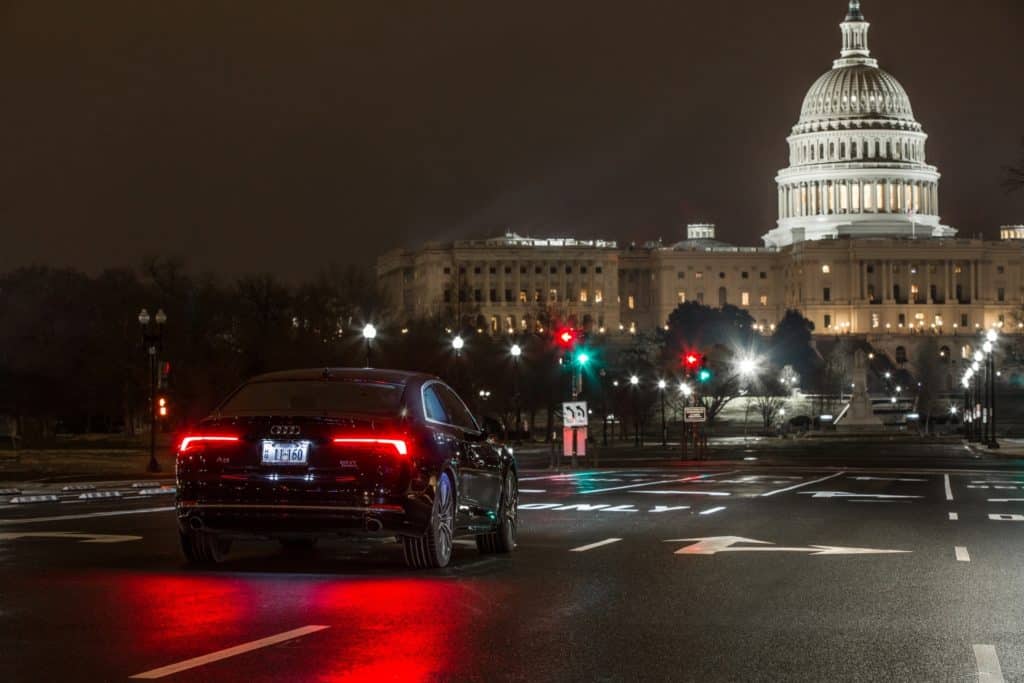 Audi of America announced that more than 600 intersections in the District of Columbia support the “time-to-green” feature of Traffic Light Information.
Audi of America announced that more than 600 intersections in the District of Columbia support the “time-to-green” feature of Traffic Light Information.
“This initiative represents the kind of innovation that is critical for us to advance the traffic safety goals of Vision Zero,” said Mayor Bowser. “We look forward to building on this, and similar partnerships, as we continue to build a safer, stronger, and smarter D.C.”
In 2016, Traffic Light Information was launched in Las Vegas, Nevada. Audi, in collaboration with Traffic Technology Services (TTS), has brought the service to six other cities including areas of Dallas and Houston, Palo Alto and Arcadia, California, Portland, Oregon and Denver. With the addition of Washington, more than 1,600 intersections across the U.S. support Traffic Light Information.
“Audi continues to be an industry leader in connectivity and mobility solutions,” said Scott Keogh, president, Audi of America. “Not only do V2I technologies like Traffic Light Information help to reduce driver stress, they are also essential infrastructure developments as we continue toward an automated future.”
Traffic Light Information, an Audi connect PRIME feature available on select 2017 and 2018 models, enables the car to communicate with the infrastructure in certain cities and metropolitan areas across the U.S.
When one of these select Audi models approaches a connected traffic light, it receives real-time signal information from the traffic management system that monitors traffic lights via the on-board 4G LTE data connection. When the light is red, the TLI feature will display the time remaining until the signal changes to green in the instrument cluster in front of the driver or in the head-up display (if equipped). This “time-to-green” information helps reduce stress by letting the driver know approximately how much time remains before the light changes.
Future iterations of V2I technology could include integration within the vehicle’s start/stop function, Green Light Optimized Speed Advisory (GLOSA), optimized navigation routing and other predictive services. All of these services are designed to help reduce congestion and enhance mobility on crowded roadways.